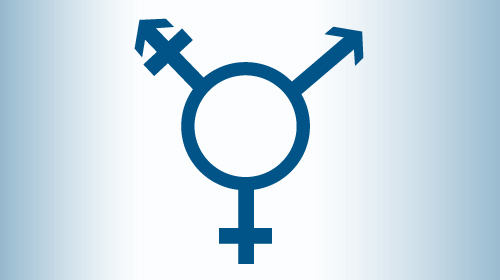
While the American workplace is often notoriously inhospitable to transgender Americans, the federal government last month moved decisively to change that. randum, the Department of Justice explicitly clarified that gender identity discrimination claims are covered under Title VII of the Civil Rights Act. This is another important step forward in the ongoing fight for basic fairness and equal treatment under the law for transgender Americans.
Our client Diane Schroer knows all too well how this type of workplace discrimination can have profound effects on someone's life, and her case was a critical step to ensuring other Americas don't face this type of discrimination.
Diane applied for a job with the Library of Congress as a senior terrorism research analyst after retiring from a 25-year career in the U.S. Army. Based on her distinguished record of military service, which included the Defense Superior Service Medal, Diane was offered the job and immediately accepted.
After Diane retired from the Army, she confronted feelings she had been dealing with her entire life. After careful consideration under the care of a doctor, Diane decided to transition from a man to a woman. Prior to starting work, Diane took her future boss to lunch to explain that she was in the process of transitioning. She had interviewed for the position while still presenting as a man and thought it would be easier for everyone if she simply started work presenting as a female. The following day, Diane received a call from the future boss rescinding the offer, telling her that she wasn't a "good fit" for the Library of Congress.
The Library of Congress thought Diane was the most qualified person for the job when they assumed she was a man and offered her the position. Rejecting the best candidate for a job based on her gender – including her decision to transition from one gender to another – was both unfair and illegal.
In 2005, the ACLU filed a lawsuit on Diane's behalf, alleging that the actions of the Library of Congress violated Title VII. At the time, DOJ vigorously fought Diane's lawsuit, arguing that transgender people are not protected under the sexual discrimination provision in Title VII. Thankfully, the court agreed with Diane, and – in a landmark legal victory for transgender people – ruled that discriminating against someone for changing genders is sex discrimination and a violation of Title VII.
The new DOJ memorandum discusses the importance of Diane's lawsuit in advancing the government's evolution on this issue. It further vindicates the rightness of Diane's fight against the discrimination she endured. This latest breakthrough builds on a number of important court decisions, including a historic ruling by the Equal Employment Opportunity Commission in 2012, which found that transgender people are protected under laws banning sex discrimination.
As important as these protections are, they certainly do not negate the need for clear and explicit laws that protect LGBT people from discrimination in the workplace as well as in other aspects of public life. Such laws leave no room for ambiguity, and they also demonstrate a concrete commitment on the part of the U.S. government to eradicating discrimination against individuals on the basis of both their sexual orientation and gender identity. The ACLU also continues to work in courts across the country to ensure that Title VII and other existing laws against sex discrimination are interpreted to include transgender people.
This change in policy by the DOJ vindicates Diane's battle against workplace discrimination and provides protection for transgender Americans as they struggle for the respect and dignity they deserve.
Learn more about anti-trans* discrimination and other civil liberty issues: Sign up for breaking news alerts, , and .

